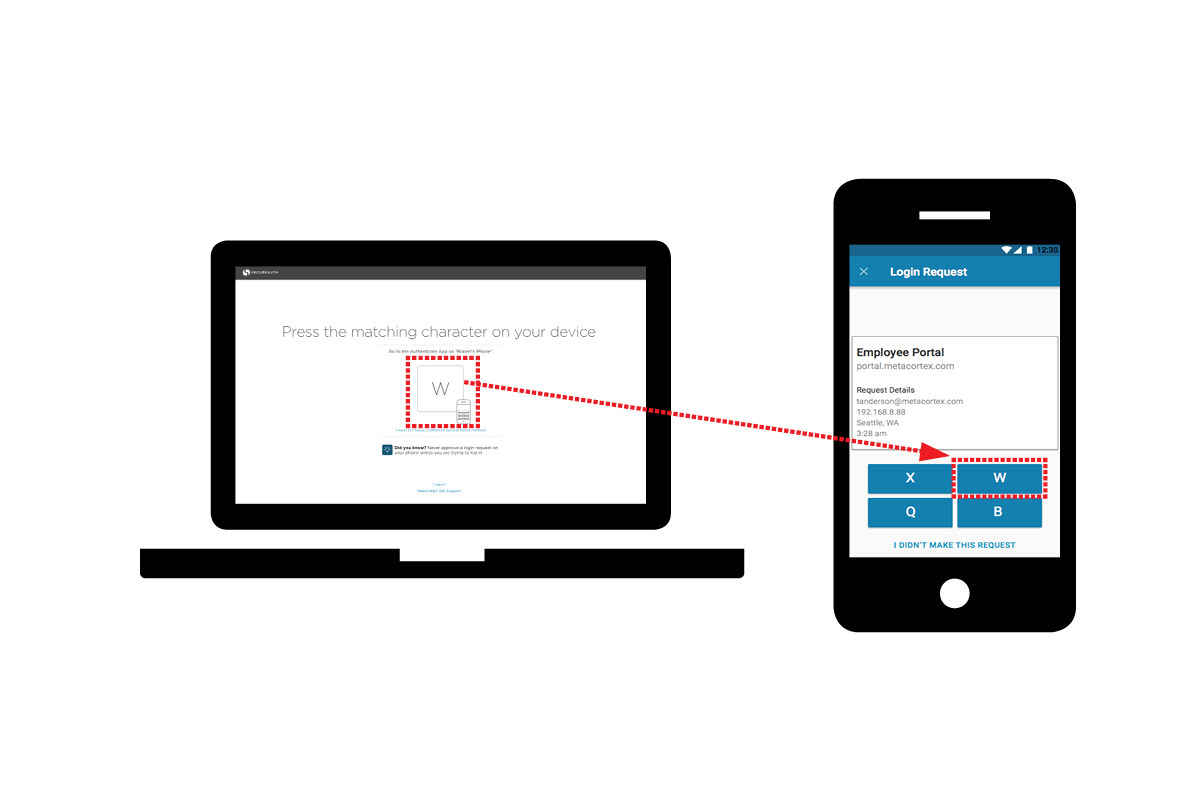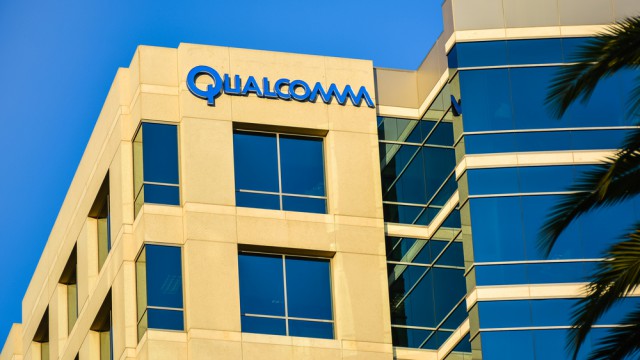
Symbol-to-accept strengthens multi-factor authentication
One of the more popular ways of securing logins in recent times has been the use of push-to-accept technology, sending a verification message to a user's mobile device.
However, this runs the risk of users inadvertently approving login requests that they didn't initiate. Adaptive access company SecureAuth is launching its new Symbol-to-accept technology to boost security without sacrificing convenience.

What is Huawei's XLabs Wireless?
During this year's, seventh Global Mobile Broadband Forum in Tokyo, deputy chairman of the board and Huawei Rotating CEO Ken Hu took to the stage to share his vision of the mobile future and presented the XLabs Wireless. This brand new initiation aims to be the platform which will unite carriers, developers and companies from different verticals.
Together, they must build an open ecosystem of mobile apps which will reshape the future of business, entertainment, and everyday living. XLabs Wireless consists of three elements -- the mLab, with the focus on people, vLab, with the focus on verticals, and hLab, focusing on households.

11 rules to improve mobile security
Mobile devices have inundated our lives. Smartphones, tablets, phablets, wearables, the list of mobiles and their variants is endless. People have stopped talking and started dat(a)ing in a big way. Communication through smart devices has clearly overwhelmed us like never before. People are buying, paying and living through their mobiles. Love and relationships can be activated through a single app.
We have reached a state where people use more than a single smart device at a time. As long as the smart-ness of smartphones was confined to individuals, the corporate world could afford to remain a silent bystander, but no longer. The BYOD or Bring Your Own Device is the new norm and not a single business can avoid the challenges which come with mobility in management.

How seasonal tech gifts could be risking your data
In the run up to the holiday season many of us will be buying internet connected devices. But new research from Intel Security shows that technology bargains and gifts could be putting consumers' data at risk.
The survey among UK consumers shows smartphones and tablets come top of many seasonal shopping lists, with 42 percent planning to upgrade gadgets to the latest models. Yet 60 percent say they have no plans to ensure security software is installed.

Qualcomm unveils Snapdragon 835 -- here is what you need to know
US chip maker Qualcomm today announces a new flagship mobile processor that will power next year's generation of high-end smartphones and tablets. Called Snapdragon 835, it is the company's first 10nm offering and promises increased energy efficiency and performance in a smaller package.
To build the Snapdragon 835, Qualcomm has teamed up with Samsung to take advantage of its 10nm FinFET manufacturing technology. This is not the first time that the two players have worked together, as Samsung also makes the Snapdragon 820. Let us take a closer look at the new kid on the block.

Wi-Fi is more important than sex
Which of these would you consider a daily essential: sex, chocolate, alcohol or Wi-Fi? If you depressingly chose the fourth and final answer, then you probably are a mobile professional, according to a new iPass report, the iPass Mobile Professional Report 2016.
The report surveyed 1,700 mobile professionals, and 40 percent of them choose Wi-Fi. Thirty-seven percent choose sex, 14 percent chocolate and nine percent chose alcohol. When asked why they gave such answers, three quarters (75 per cent) say having Wi-Fi improves the quality of their life.

iOS apps three times more likely to crash than Android
With iOS and Android waged in a long term battle for smartphone market share every quarter, device performance can often play a role in shaping the final results.
According to a report released today by Blancco Technology Group, Apple is losing the app performance battle to Android with its iPhones and iPads failing at a rate of 62 percent worldwide, compared to the 47 percent failure rate of Android devices.

Time tracking tools aren't keeping up with mobile workforces
Modern businesses are increasingly concerned with agility and efficiency and this leads them to seek more mobile solutions. But a new report shows that workforces are struggling with outdated processes that don't adequately support this new world.
The study by performance management specialist Changepoint shows that organizations using time and task data to guide business decisions are relying on old-fashioned methods including Excel spreadsheets (28 percent) and even pen and paper (36 percent).

What you need to know about enterprise mobility
The importance of mobility in the workplace has grown significantly in recent years, driven by technological innovations like smartphones and web-based applications. The traditional office confines have been eroded and now customers, clients and employees demand the tools required to work whenever and wherever they need to.
Businesses that are unwilling to embrace mobility, or do so ineffectively, risk being overtaken by a competitor that is able to provide the flexibility required by the modern world of work. There are legitimate concerns when it comes to business mobility, but fortunately there are also a number of solutions that allow organizations to adopt innovative technologies without introducing security problems and other issues.

BYOA: Challenges and opportunities
The bring your own access (BYOA) movement has presented a number of challenges and opportunities to IT leaders in recent years. Since the dawn of the smartphone, the consumerization of IT has left CIOs fighting to keep up with the latest trends in productivity, communication and creativity apps.
Driven by simple user interfaces and the promise of fast synchronization across devices, business users have flocked away from the typical corporate IT stacks and begun to pick and choose their own tools, often without the consent of IT.

Employees feel pressure to use personal devices for work
Of employees in the US who use their personal smartphones for work, 45 percent are required to do so by their employers and 55 percent do so voluntarily. However, of those voluntary users 42 percent feel pressured to use their phone for business use outside of work.
This is among the findings of a new survey by platform services company Syntonic which reveals mounting pressure on employees to use their personal devices for work even if not required by their employer.

SEO alert: Google search to rank sites according to their mobile versions
Having recently said that it will show different search results to mobile and desktop users, Google now has another search related announcement. Reacting to the fact that most searches are conducted from mobile devices, search results will be ranked according to sites' mobile content.
Google says that it has "begun experiments to make [its] index mobile-first", and it's a move that essentially says that mobile searchers are more important than the rest. In light of the recent splitting of mobile and desktop indexing, the announcement is hardly a bolt out of the blue, but it's still something that many site owners will need to take action about.

You can use your phone, just shut up about the election!
Smartphone use at family dinners used to be something of a frowned on activity. But a new survey reveals that people are becoming more tech tolerant.
The study from connected experience agency Sequence shows that while 35 percent of those surveyed say smartphone use at the holiday table creates tension, far more (65 percent) are bothered by discussing politics.

Mobile devices set to influence holiday shopping habits
We're increasingly reliant on our mobile devices for many aspects of our lives and that includes our shopping.
As we move towards the holiday season advertising platform Opera Mediaworks has surveyed 800 mobile users to find out how they intend to use their mobile devices for their seasonal shopping.

New platform aims to deliver personalized communications to any device
In order to retain customers businesses need to be responsive to their needs and send them relevant communications.
Mobile growth platform company Urban Airship is making it easier for marketers to do this with a service that lets them deliver individualized messaging to any platform, device or marketing channel and use real-time customer data from any system.
